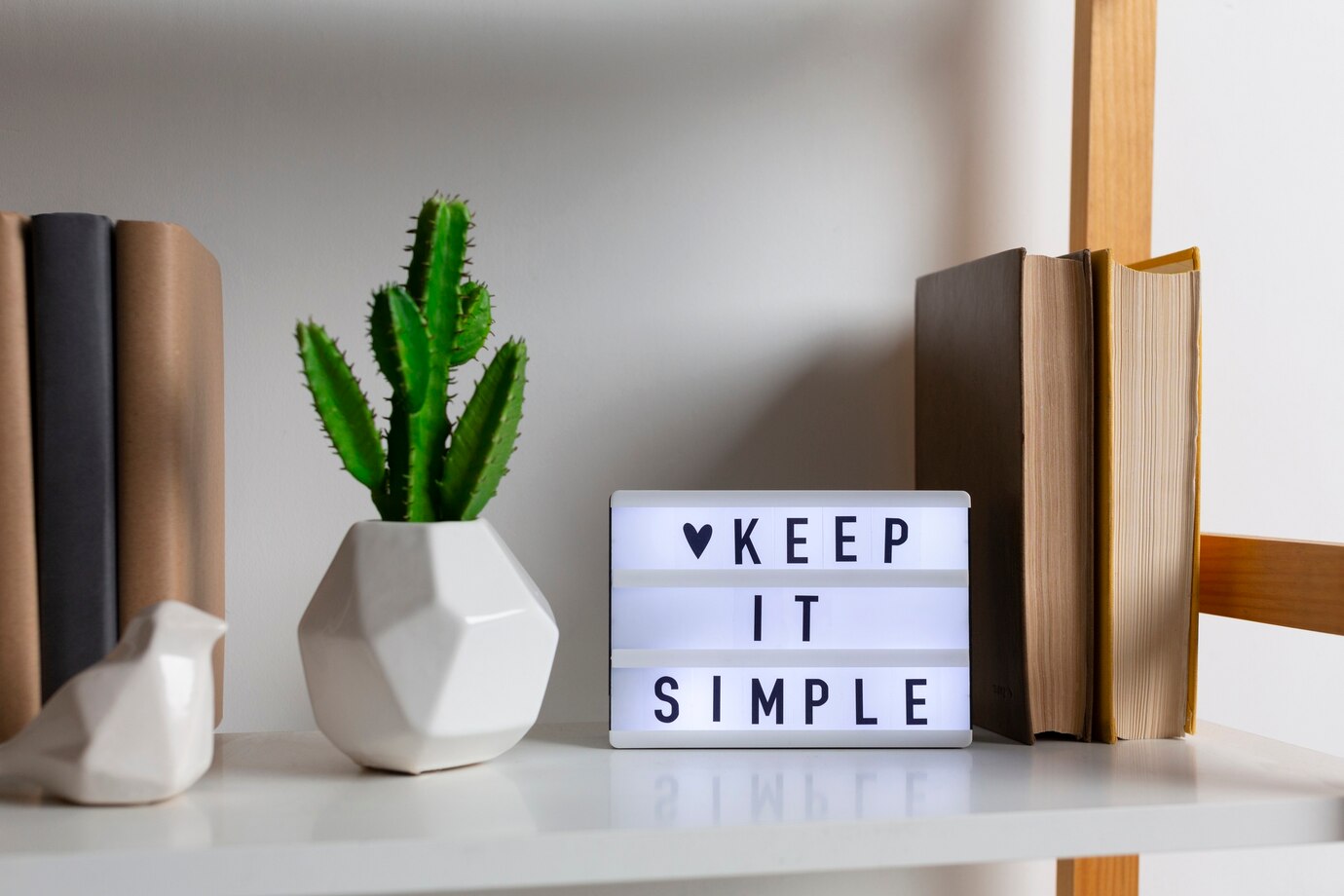Home Empowerment
How to Build a Sustainable Garden Using Recycled Materials

Building a sustainable garden is a rewarding and environmentally friendly way to cultivate plants, beautify your outdoor space, and contribute to a greener planet. One of the most effective ways to create a sustainable garden is by using recycled materials. Not only does this approach minimize waste, but it also saves money and reduces the environmental footprint of traditional gardening methods. In this comprehensive guide, we will walk you through the key steps and strategies on how to build a sustainable garden using recycled materials, offering practical advice and up-to-date tips to make your garden a haven for both nature and sustainability.
Why Build a Sustainable Garden?
Before diving into the specifics of how to build a sustainable garden using recycled materials, let’s first explore why sustainable gardening is so important.
- Environmental Impact: Sustainable gardening practices help reduce pollution, conserve water, and protect biodiversity. By using recycled materials, you reduce the need for new resources, cutting down on production energy and waste.
- Cost-Efficiency: Recycled materials, such as old wood, bricks, and containers, are often free or significantly cheaper than buying new garden supplies. This makes it an excellent choice for gardeners on a budget.
- Waste Reduction: By repurposing items you already have at home, you can keep items out of landfills, contributing to a circular economy and reducing environmental waste.
- Biodiversity Support: Sustainable gardens encourage local wildlife, such as birds, insects, and beneficial pollinators, to thrive. This biodiversity helps maintain a balanced ecosystem and supports long-term plant health.
Step-by-Step Guide: How to Build a Sustainable Garden Using Recycled Materials
1. Planning Your Garden Layout
The first step in building any garden is planning. Think about the size and shape of your garden space, the types of plants you want to grow, and how you can incorporate recycled materials into your design.
- Design a Functional Layout: Whether you’re creating raised beds, a herb garden, or a flower bed, make sure your design maximizes sunlight exposure, minimizes water wastage, and uses recycled materials effectively.
- Consider Soil Health: Healthy soil is the foundation of any thriving garden. You can improve soil quality by incorporating compost (which you can make from food scraps) or using old cardboard as mulch to prevent weeds and conserve moisture.
2. Gathering Recycled Materials
Once you’ve planned your garden layout, it’s time to gather your materials. Here are some common recycled materials you can use in your sustainable garden:
- Old Wood: Old pallets, fencing, or wooden furniture can be repurposed into garden structures, such as raised beds, garden boxes, or trellises for climbing plants. Make sure the wood is untreated or use non-toxic paint to ensure safety.
- Plastic Containers: Reuse plastic bottles, containers, and tubs as planters. Cut them to size, create drainage holes, and fill them with soil for an eco-friendly gardening solution.
- Glass Jars and Bottles: Glass jars and bottles can be used to create unique garden lighting or small greenhouses for seedlings.
- Bricks and Stones: If you have old bricks or stones lying around, these can be used to create pathways, build garden borders, or even create a fire pit.
- Old Tires: Tires can be turned into raised beds or garden planters. Paint them in vibrant colors for a fun touch, or stack them for added height in your garden.
- Cans and Tin Containers: Empty tin cans can be used as planters, wind chimes, or garden markers. These can be creatively decorated for added charm.
3. Building Raised Beds with Recycled Materials
One of the most popular ways to use recycled materials in gardening is to build raised beds. Raised beds provide better drainage, help to prevent soil compaction, and can be made from materials like old wood, bricks, and even corrugated metal.
- Materials Needed: Old wooden pallets, scrap wood, bricks, cinder blocks, or even large plastic containers.
- Steps:
- Choose a location with plenty of sunlight.
- Lay down a weed barrier, such as cardboard, to prevent weeds from growing through the bottom of the bed.
- Assemble the materials to form a border. If you’re using bricks or cinder blocks, stack them in a rectangular shape. If you’re using wood, nail or screw the planks together to form the edges.
- Fill the raised bed with nutrient-rich soil or compost.
- Plant your desired crops and enjoy your eco-friendly garden!
4. Creating Vertical Gardens Using Recycled Materials
If space is limited, vertical gardens can be a great way to maximize your growing area. You can create vertical gardens using recycled materials such as old pallets, wine crates, and plastic bottles.
- Materials Needed: Wooden pallets, wine crates, plastic bottles, gutters, or old ladders.
- Steps:
- Find a vertical surface or wall to mount your garden.
- For pallets, simply hang the pallet upright and fill each slat with soil for planting.
- For wine crates, secure them on a wall or fence and fill them with soil for planting.
- Plastic bottles can be cut into sections and hung vertically, each holding a small plant.
Vertical gardens not only make use of recycled materials, but they also help conserve space and water, making them a sustainable option for small gardens or urban environments.
5. Water Conservation Strategies
Water is one of the most valuable resources in any garden, so it’s important to conserve it as much as possible. By using recycled materials, you can create efficient irrigation systems and water-saving techniques.
- Rain Barrels: Install a rain barrel to collect runoff water from your roof. This water can then be used to irrigate your garden.
- Greywater Systems: If you’re comfortable with a DIY project, consider setting up a greywater recycling system to reuse water from your sink, shower, or washing machine for irrigation.
- Drip Irrigation: Use recycled hoses or plastic bottles with small holes poked in them to create an inexpensive drip irrigation system.
6. Composting and Waste Reduction
Composting is a fundamental part of sustainable gardening. It allows you to recycle organic waste into valuable, nutrient-rich soil that can be used in your garden.
- Compost Bin: You can build a compost bin using wooden pallets or old chicken wire. Make sure to include a mix of green and brown materials, such as kitchen scraps, leaves, and garden trimmings.
- Vermiculture: For an eco-friendly option, consider vermiculture (worm composting) using old containers or crates.
By composting at home, you’ll reduce waste and enhance your garden soil with natural nutrients.
7. Recycling and Repurposing Garden Tools
If you have old, rusty garden tools or unused items lying around, consider repurposing them into something useful for your sustainable garden. Old shovels can be turned into garden hooks, and broken terracotta pots can be used as drainage pots or garden decorations.
Recycled Materials vs. New Materials in Gardening
| Material Type | Recycled Material | New Material | Benefits of Recycled Materials |
|---|---|---|---|
| Garden Beds | Old wood, pallets, bricks, tires | New wood, plastic, concrete blocks | Eco-friendly, cost-effective, reduces waste |
| Planters | Plastic bottles, cans, wine crates, old tires | Ceramic, terracotta, plastic planters | Low-cost, creative, reuses existing items |
| Watering Systems | Rain barrels, recycled hoses | Commercial irrigation systems | Water conservation, reuses household waste |
| Compost | Kitchen scraps, yard trimmings | Commercial compost | Reduces landfill waste, enriches soil |
Tips for Maintaining a Sustainable Garden
- Use Organic Fertilizers: Instead of synthetic fertilizers, opt for organic compost, manure, or plant-based fertilizers to nourish your garden sustainably.
- Mulch Your Garden: Use organic mulches, such as leaves, grass clippings, or newspaper (a recycled material), to reduce water evaporation, suppress weeds, and improve soil health.
- Harvest Rainwater: Install a rainwater collection system using barrels or recycled containers to capture and store rainwater for later use in your garden.
Conclusion
Building a sustainable garden using recycled materials is an excellent way to contribute to environmental conservation while enjoying the beauty of your garden. By repurposing items like old wood, plastic bottles, and tires, you can create a functional, eco-friendly outdoor space that thrives with minimal impact on the environment. Whether you’re creating raised beds, vertical gardens, or efficient watering systems, the possibilities are endless when you incorporate recycled materials into your gardening plans.
Home Empowerment
The Beauty and Versatility of Fantasy Brown Granite

Step into the enchanting world of Fantasy Brown Granite, where elegance meets versatility in every slab. This unique stone is not just a countertop material; it’s a work of art that can transform any space into a luxurious oasis. Join us as we delve deeper into the beauty and allure of Fantasy Brown Granite in this complete guide. Let’s explore its timeless charm, coordinating materials, comparisons with other options, and where to find this exquisite stone. Get ready to be inspired by the endless possibilities that Fantasy Brown Granite has to offer!
Understanding Fantasy Brown Granite
Fantasy Brown Granite, a natural stone hailing from India, is renowned for its stunning blend of earthy tones. With swirls of gray, white, and brown creating intricate patterns, each slab is a one-of-a-kind masterpiece. Unlike traditional granites, Fantasy Brown boasts unique veining that resembles marble but with the durability of granite.
This exotic stone is ideal for kitchen countertops, bathroom vanities, and even fireplace surrounds due to its heat resistance and low maintenance requirements. Its neutral color palette makes it versatile enough to complement various design styles – from modern to traditional.
The beauty of Fantasy Brown lies in its ability to elevate any space with sophistication and charm. Whether used as a statement island or as elegant flooring tiles, this granite exudes luxury without being overpowering.
What Type of Stone is It?
Fantasy Brown Granite is a unique and exotic stone that offers a blend of stunning colors and patterns, making it a popular choice for countertops and other surfaces. This beautiful natural stone is not classified as traditional granite but falls under the category of marble due to its composition.
The intricate veining and swirls of brown, gray, white, and sometimes even hints of green create a mesmerizing visual appeal that sets Fantasy Brown apart from other types of stones. Its distinctive look adds an elegant touch to any space, whether in kitchens or bathrooms.
This versatile stone is renowned for its durability and resistance to heat, scratches, and stains. It requires minimal maintenance compared to other materials like marble or quartz. Fantasy Brown Granite is sourced from quarries in India where skilled artisans extract the slabs before they are shipped worldwide for installation in homes.
Understanding the type of stone Fantasy Brown Granite is can help you appreciate its unique qualities and make an informed decision when choosing it for your next project.
The Elegance of Fantasy Brown
Unveiling the elegance of Fantasy Brown granite is like discovering a hidden gem in the world of natural stone. Its intricate veining, ranging from soft creams to subtle grays, adds depth and sophistication to any space it adorns. Whether used for kitchen countertops or bathroom vanities, this exquisite stone exudes luxury and charm.
The unique patterns found in Fantasy Brown create a sense of movement and visual interest, making each slab one-of-a-kind. Its versatile color palette allows for seamless integration with various design styles, from modern to traditional. The polished finish enhances the stone’s beauty while highlighting its natural characteristics.
Pairing Fantasy Brown granite with complementary materials such as wood accents or metallic finishes can elevate the overall aesthetic appeal of a room. This stunning stone effortlessly blends warmth with elegance, creating a timeless look that transcends trends.
Unveiling Timeless Beauty
Step into a world where elegance meets timelessness with Fantasy Brown Granite. This exquisite stone boasts a unique palette of soft, neutral tones that effortlessly complement any design style. The intricate veining and subtle movement in the slab add depth and character, making each piece truly one-of-a-kind.
Imagine your kitchen or bathroom adorned with the luxurious beauty of Fantasy Brown Granite countertops. The delicate swirls of cream, grey, and hints of rose create a sense of sophistication and refinement that never goes out of style. Whether paired with modern cabinetry for a contemporary look or contrasted with traditional elements for a classic aesthetic, this versatile stone will elevate any space.
With its unparalleled beauty and durability, Fantasy Brown Granite transcends trends to become a timeless choice for homeowners seeking luxury and longevity in their design choices. Experience the allure of this natural masterpiece as it transforms your living spaces into havens of beauty and tranquility.
Exploring Coordinating Materials
When it comes to designing a space with Fantasy Brown Granite, the possibilities are endless. This versatile stone pairs beautifully with a variety of coordinating materials, allowing you to create a truly unique and sophisticated look.
For a modern and sleek aesthetic, consider pairing Fantasy Brown Granite with stainless steel appliances and chrome fixtures. The cool tones of these materials will complement the warm undertones of the granite, creating a harmonious balance in your space.
If you prefer a more traditional feel, opt for wood cabinetry in rich finishes like cherry or mahogany. The natural warmth of wood contrasts beautifully with the subtle veining of Fantasy Brown Granite, adding depth and character to your kitchen or bathroom.
To add an element of luxury to your design, incorporate accents of marble or glass. Whether it’s a marble backsplash or glass pendant lights, these materials will elevate the elegance of Fantasy Brown Granite and create a stunning focal point in any room.
Comparing Materials
When it comes to selecting materials for your countertops, the choice between quartz and granite can be a tough decision. Quartz is known for its engineered durability, non-porous surface, and wide range of color options. On the other hand, granite like Fantasy Brown offers natural beauty with unique veining patterns and colors that cannot be replicated.
Quartz countertops are low-maintenance and resistant to stains but may not withstand heat as well as granite. Granite is heat-resistant but requires periodic sealing to maintain its integrity. Both materials have their advantages depending on your lifestyle and aesthetic preferences.
If you prefer a more uniform look with consistent coloring, quartz might be the better option for you. However, if you appreciate the one-of-a-kind beauty of natural stone with each slab being truly unique, then Fantasy Brown granite could be the perfect choice for your space.
Quartz vs. Granite: Unraveling the Differences
When it comes to choosing between quartz and granite for your countertops, there are key differences to consider. Quartz is an engineered stone made of natural quartz mixed with resin, offering a wide range of colors and patterns. On the other hand, granite is a natural stone known for its unique veining and durability.
Quartz countertops are non-porous, making them resistant to stains and bacteria growth. They require minimal maintenance and do not need sealing. Granite countertops, while durable and heat-resistant, may require regular sealing to maintain their integrity.
In terms of aesthetics, quartz allows for more consistency in color and pattern since it’s man-made. Granite offers a one-of-a-kind look due to its natural variations in veining and speckling.
Both materials have their advantages depending on your preferences for maintenance level, appearance, and budget considerations.
Where to Find Fantasy Brown
If you’re on the hunt for Fantasy Brown granite to elevate your space, there are various avenues where you can find this exquisite stone. One option is to explore local stone suppliers or countertop fabricators in your area. Many of these professionals carry a range of granite options, including Fantasy Brown.
Another way to track down this stunning stone is by visiting specialized stone showrooms and warehouses that focus on natural stones like granite. These establishments often have a wide selection of granite slabs available for viewing and purchase, making it easier for you to find the perfect match for your project.
You can also turn to online platforms and marketplaces that specialize in selling natural stones. Websites dedicated to showcasing different types of granite may feature Fantasy Brown in their inventory, allowing you to browse from the comfort of your own home before making a decision.
Whether you prefer the tactile experience of visiting physical locations or the convenience of shopping online, there are plenty of options available when it comes to finding Fantasy Brown granite for your next design endeavor.
Popular Platforms and Showrooms
When it comes to finding Fantasy Brown Granite for your next project, exploring popular platforms and showrooms can open up a world of possibilities.
Online platforms like Houzz and Wayfair offer a wide selection of granite options, including Fantasy Brown, allowing you to browse from the comfort of your home. These platforms often provide detailed descriptions and customer reviews to help guide your decision-making process.
For those who prefer a hands-on experience, visiting local stone yards or showrooms can provide a tactile understanding of the beauty and versatility of FantasyBrown Granite. Seeing the intricate patterns and colors in person can inspire new design ideas and help you envision how this stunning stone will look in your space.
Some well-known national retailers like Home Depot or Lowe’s also carry FantasyBrown Granite countertops, making it easily accessible for homeowners looking to elevate their kitchens or bathrooms with this elegant stone.
Conclusion
As you embark on your journey to revamp your space with the exquisite beauty of Fantasy Brown granite, remember that this versatile stone is more than just a countertop or vanity material – it’s a statement piece that exudes elegance and sophistication. Whether you choose to pair it with classic white cabinets for a timeless look or opt for sleek black accents for a modern touch, FantasyBrown granite will elevate the aesthetic of any room.
With its unique blend of colors and patterns, durability, and low maintenance requirements, FantasyBrown granite is truly a top choice for homeowners looking to add both style and functionality to their spaces. So go ahead, explore the possibilities that this stunning natural stone has to offer and transform your home into a haven of luxury and charm.
Home Empowerment
How Fibreglass is Reinventing Flat Roofing for Durability and Sustainability in the UK

Discover how modern fibreglass systems are revolutionising flat roofing in the UK—offering superior performance, longevity, and sustainability over traditional materials.
Flat roofing has become a mainstay of British architecture, particularly in domestic extensions, garages, commercial properties, and new-build developments. Its clean lines and space-saving potential make it a popular choice—but historically, flat roofs have also attracted criticism. Concerns around durability, leaks, maintenance, and environmental impact have plagued traditional materials like felt and bitumen for decades.
However, advances in construction materials are transforming perceptions, with fibreglass now leading the charge as a robust, reliable, and sustainable solution for flat roofing in the UK. Known in the trade as GRP (glass-reinforced plastic), fibreglass is gaining traction among contractors, property renovators, and self-builders seeking a future-proof approach to roofing.
This article explores how fibreglass is reshaping the flat roofing sector—delivering performance benefits that far exceed legacy systems while aligning with growing demand for greener, low-maintenance building materials.
The Legacy of Traditional Flat Roofing
Flat roofs, despite their simplicity and appeal, have often struggled with long-term performance. Traditional felt-based systems, while affordable and easy to install, are prone to cracking, UV degradation, and poor resistance to standing water. Bitumen, another staple material, offers better sealing properties but can become brittle over time and demands regular maintenance.
As a result, property owners have frequently found themselves dealing with leaks, thermal inefficiencies, and repeated patching or full replacements—raising the total cost of ownership and undermining confidence in flat roofing as a whole.
With changing building regulations and a heightened emphasis on both energy efficiency and sustainability, the industry has increasingly looked towards alternatives that offer durability without compromising environmental or economic values.
Enter Fibreglass: The Game-Changer in Modern Roofing
Fibreglass roofing systems offer a step-change in both technical performance and aesthetic quality. Composed of layers of glass matting and resin, GRP forms a seamless, rigid membrane that is both weatherproof and highly resistant to wear and tear.
One of the standout advantages of fibreglass is its exceptional durability. A professionally installed GRP roof can last 30 years or more with minimal maintenance. Unlike felt or bitumen, it doesn’t crack under UV exposure or temperature fluctuations, nor does it suffer from seam failures—since the entire roof forms a single, continuous surface.
Water ingress, one of the main failings of older systems, is virtually eliminated with fibreglass. Its seamless application removes vulnerable joints and overlaps, which are typically the first points of failure in traditional flat roofs.
Installers are increasingly opting for solutions like the heavy-duty fibreglass roofing kit from Apex Fibreglass Roofing Supplies, which provides everything required for a professional-grade finish—including resins, matting, topcoats, and hardeners. These comprehensive kits ensure consistency, simplify planning, and provide peace of mind for tradespeople and self-builders alike.
Low Maintenance, High Return
One of the key selling points of fibreglass roofing is its long-term cost efficiency. While the initial outlay may be slightly higher than that of felt, the overall lifecycle costs are significantly lower.
GRP roofs are virtually maintenance-free, requiring only occasional cleaning and visual checks to remain in optimal condition. There’s no need for annual re-coating or emergency repairs following heavy weather—common occurrences with more vulnerable materials.
This makes fibreglass especially appealing for rental property owners, commercial building managers, and homeowners who value reliability and low ongoing expense.
Sustainability and Energy Efficiency
As the UK edges closer to net zero targets, the construction sector is under pressure to adopt more sustainable materials and methods. Fibreglass roofing aligns with this shift in several key ways.
First, its longevity reduces waste over time. A longer lifespan means fewer roof replacements, less material sent to landfill, and reduced overall resource consumption. Second, GRP materials can be manufactured with lower embodied energy compared to some traditional options. And finally, fibreglass roofing can be integrated with insulation layers and green roofing systems to improve building thermal performance—cutting down on energy use and emissions.
Moreover, fibreglass’s chemical resistance makes it suitable for rainwater harvesting systems, which are becoming more common in sustainable building designs. The non-porous, inert surface ensures water quality is maintained without contamination—an often-overlooked benefit for eco-conscious homeowners and architects.
Speed and Simplicity of Installation
Another compelling advantage of fibreglass is the speed of installation. For experienced roofers, a fibreglass system can be applied quickly—even in complex or confined spaces. Because the application process is cold-applied (i.e. no need for naked flames or hot works), it’s also safer and more flexible on-site.
A typical installation involves the decking, resin-impregnated matting, and a topcoat, which cures to form a fully bonded, seamless membrane. Components are light and easy to handle, reducing physical strain and time on site. Additionally, coloured topcoats can be selected to match surrounding aesthetics—offering a cleaner, more modern finish than traditional bitumen or felt.
Suppliers like Apex Fibreglass Roofing Supplies play a vital role in ensuring consistent product quality and technical support. With nationwide delivery, expert advice, and tailored kits for different project sizes, they’re enabling more tradespeople to confidently embrace GRP systems on everything from domestic extensions to commercial refits.
Ideal for a Range of Applications
While fibreglass is often associated with domestic builds, its versatility makes it suitable across a wide range of sectors and property types:
- Domestic: Extensions, garages, dormers, porches
- Commercial: Office blocks, retail outlets, workshops
- Public sector: Schools, hospitals, libraries
- Industrial: Plant rooms, flat-roofed warehouses
It’s also ideal for custom projects, including balcony overlays and garden room roofs, thanks to its high aesthetic quality and resistance to foot traffic when properly finished.
Overcoming Misconceptions
Despite its growing popularity, fibreglass still suffers from a few lingering misconceptions—mostly rooted in outdated comparisons with early GRP installations or misapplication by untrained installers.
Today’s systems are light-years ahead in terms of formulation and performance. With the right supplier and proper installation training, fibreglass roofing is a highly reliable and professional-grade option. As awareness grows and more case studies emerge, the reputation of fibreglass is shifting from niche to mainstream.
Future-Proof Roofing: Why Fibreglass is Raising the Standard for Flat Roofs in the UK
In a market where performance, reliability, and sustainability matter more than ever, fibreglass is emerging as the ideal flat roofing solution for modern Britain. Whether for self-builders, contractors, or large-scale developers, GRP offers a future-proof alternative to ageing materials—delivering long-term value, environmental benefits, and visual appeal in equal measure.
With trusted suppliers like Apex Fibreglass Roofing Supplies supporting the trade with high-quality kits and expert guidance, the UK roofing sector is well positioned to make the shift towards fibreglass—redefining flat roofing standards for a new generation.
Home Empowerment
Simplicity: The Art of Living Better with Less

In today’s fast-paced world, simplicity—or “simpcitu” as some may playfully call it—has become a rare yet essential virtue. The constant bombardment of information, choices, and distractions leaves many feeling overwhelmed. Adopting a simpler lifestyle can reduce stress, increase productivity, and improve overall happiness.
This article explores the power of simplicity, why it matters, and practical ways to embrace it in daily life. Whether you’re decluttering your home, streamlining work, or seeking mental peace, these strategies will help you live with greater clarity and purpose.
Why Simplicity Matters More Than Ever
Modern life is filled with complexities—endless notifications, overflowing closets, packed schedules, and decision fatigue. Research shows that:
-
Clutter increases stress (American Psychological Association).
-
Too many choices lead to decision paralysis (Columbia University study).
-
Minimalism improves focus and well-being (Journal of Positive Psychology).
Simplicity isn’t about deprivation—it’s about intentional living. By removing distractions, you make space for what truly matters.
10 Practical Ways to Embrace Simplicity (Simpcitu) in Daily Life
1. Declutter Your Physical Space
A cluttered environment leads to a cluttered mind. Start small:
-
Use the “20/20 Rule”: If you can replace an item for under $20 in 20 minutes, consider donating it.
-
Try the “One-In, One-Out” rule—for every new item, remove an old one.
-
Adopt minimalist home design—fewer decorations, more open space.
2. Digital Detox: Simplify Your Tech Life
-
Unsubscribe from unnecessary emails.
-
Turn off non-essential notifications.
-
Organize apps into folders (e.g., “Social,” “Productivity”).
-
Schedule screen-free time daily.
3. Streamline Your Schedule
-
Batch similar tasks (e.g., replying to emails in one go).
-
Learn to say “no”—overcommitment leads to burnout.
-
Use time-blocking (dedicate chunks of time to specific activities).
4. Adopt a Capsule Wardrobe
-
Keep 30-40 versatile clothing items that mix and match.
-
Donate clothes you haven’t worn in a year.
-
Focus on quality over quantity.
5. Simplify Your Finances
-
Automate savings and bill payments.
-
Cut unnecessary subscriptions.
-
Follow the 50/30/20 rule: 50% needs, 30% wants, 20% savings.
6. Eat Simple, Nutritious Meals
-
Meal prep to avoid last-minute unhealthy choices.
-
Stick to whole foods—fewer ingredients, better health.
-
Practice mindful eating—slow down and savor meals.
7. Practice Mindfulness & Meditation
-
Start with 5 minutes of daily meditation (apps like Headspace help).
-
Practice deep breathing to reduce stress.
-
Keep a gratitude journal—focus on what you have, not what you lack.
8. Limit Multitasking (Focus on One Thing at a Time)
-
Studies show multitasking reduces productivity by 40% (American Psychological Association).
-
Use the Pomodoro Technique (25-minute focused work sessions).
9. Reduce Decision Fatigue
-
Plan outfits the night before.
-
Create routines (e.g., same breakfast every weekday).
-
Limit social media scrolling—set app timers.
10. Cultivate Meaningful Relationships
-
Spend quality time with loved ones—not just quantity.
-
Let go of toxic relationships that drain energy.
-
Be present—put away phones during conversations.
The Psychological Benefits of Simplicity
Living simply isn’t just about having fewer things—it’s about mental freedom. Benefits include:
✔ Less stress & anxiety
✔ Improved focus & creativity
✔ Stronger relationships
✔ More financial freedom
✔ Greater appreciation for life’s small joys
Final Thoughts: Start Small, Think Big
Simplicity (or “simpcitu”) is a journey, not a destination. You don’t need to overhaul your life overnight—small, consistent changes lead to lasting results.
Which area will you simplify first? Decluttering your home? Cutting digital distractions? Streamlining your schedule? Take one step today toward a calmer, more intentional life.
By embracing simplicity, you create space for what truly matters—joy, purpose, and peace.
-

 Articles3 months ago
Articles3 months agoHow Many Times Can You Regrow Green Onions
-

 News10 months ago
News10 months agoUnderstanding HotLeaks: What You Need to Know
-

 Fashion8 months ago
Fashion8 months agoOpals in the USA: A Gemstone Transforming the Crystal Healing Market
-

 Entertainment7 months ago
Entertainment7 months agoHow to Use Snaptik: A Complete Guide to Download TikTok Videos
-

 Technology1 year ago
Technology1 year agoThe Wonders of Oh Em Gee Blog
-

 Entertainment1 year ago
Entertainment1 year agoBare it All: Unforgettable Skinny Dipping Stories Shared
-

 Health1 year ago
Health1 year agoCan You Smoke Shrooms? Exploring the Myths and Realities
-

 Articles5 months ago
Articles5 months agoWHAT IS THE DIFFERENCE BETWEEN SEED GARLIC AND FOOD GARLIC?
